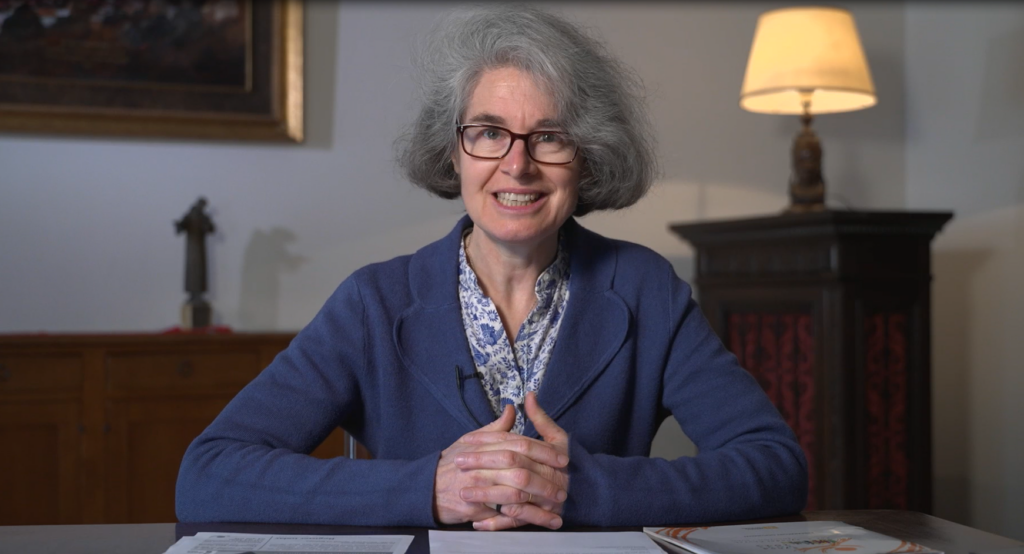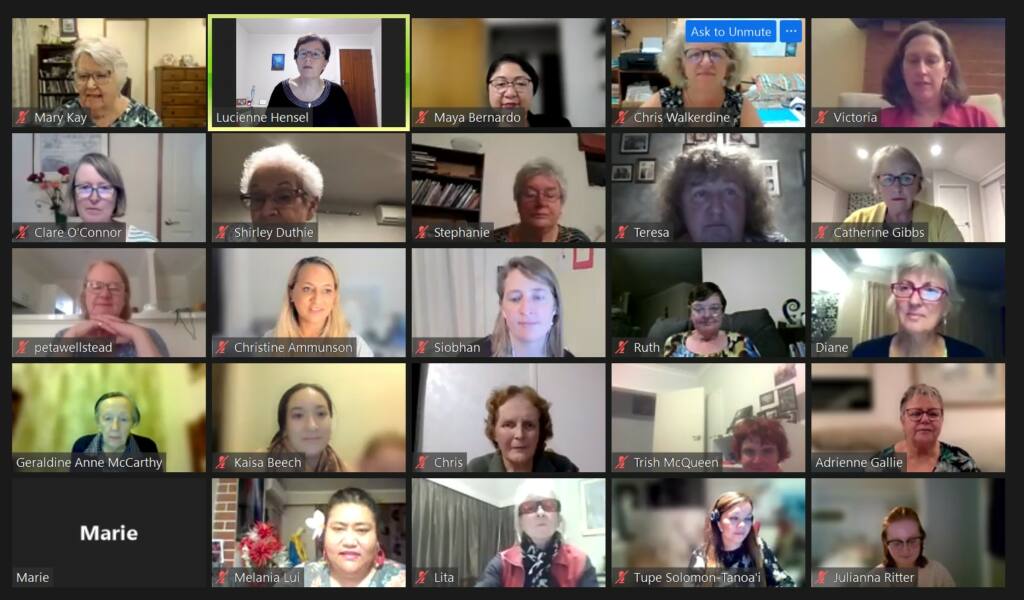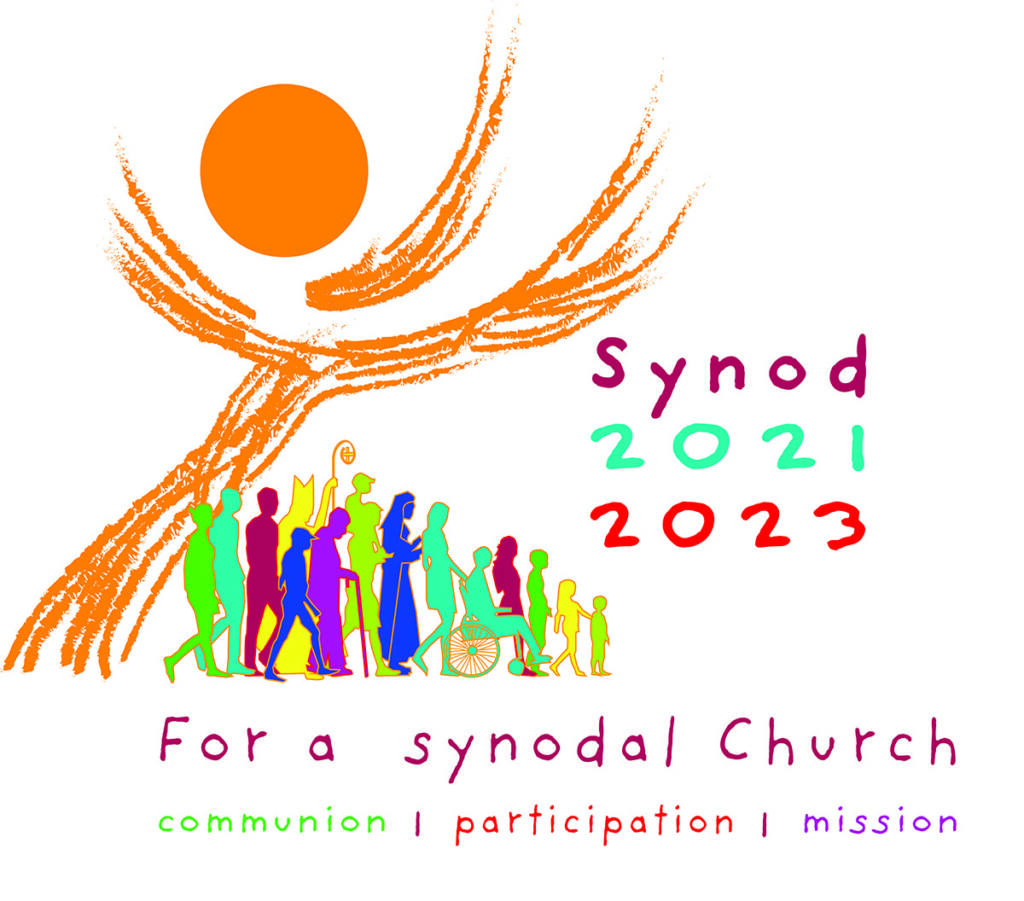
WelCom May 2022
Pope Francis and other Church leaders have framed synodality as a decisive step in the Church’s renewal the Second Vatican Council proposed more than a half century ago.
As the pope has explained it, a synodal church journeys together with all the baptised, including those whose voices are usually not heard. Pope Francis asks of us: ‘What does the Holy Spirit expect of the Church in the 21st century? We can sit around and look inward, but if we’re not hearing from everyone, we won’t know how we can get the Gospel out today.’
At a recent international conference Sr Nathalie Becquart, the global Synod undersecretary to the Synod of Bishops, said Catholic women need to encourage and support one another for the realisation of the inclusive Church they dream about – ‘one that values everyone’s gifts, promotes collaboration and listens to the Holy Spirit’.
In response, the Archdiocese of Wellington synod team organised two sessions last month – by Zoom and in person – as an opportunity for Catholic women throughout the archdiocese to participate in the global synodal journey to share, listen and discern with one another. Entitled ‘Women’s Voices’, the organisers invited Sr Nathalie to address the sessions. Excerpts from her video message follow.
“Dear Sisters in Christ from the Archdiocese of Wellington in New Zealand.

More than 50 women from the archdiocese met on Zoom or in person at the Women’s Voice sessions last month to take part in the global synod and make their voices heard as women of faith. Participants included South Island parishioners, two parishioners from Palmerston North and a Richmond parishioner in Australia. ‘As we came together to pray, share and listen to one another, we sensed we are being called to a new way of being Church – that shows hospitality to everyone, listens to the hurting and marginalised, and encourages and affirms members,’ said Lucienne Hensel of the archdiocesan synod team. Photos: Supplied
I am truly happy to greet you and bless you from Rome as you are about to start your listening sessions to give your women’s voice. It is very important all the diversity of the people of God in all the dioceses around the world are part of this Synod, and especially women.
As you may have seen, during the last two Synods, the Synod on Youth and the Synod on the Amazon, women have already played an important role, in the preparation first but also in the Synod. I want to share with you a short quote from Pope Francis in Christus Vivit, a post-synodal exhortation:
‘A living Church can react by being attentive to the legitimate claims of those women who seek greater justice and equality. A living Church can look back on history and acknowledge a fair share of male authoritarianism, domination, various forms of enslavement, abuse and sexist violence. With this outlook, she can support the call to respect women’s rights, and offer convinced support for greater reciprocity between males and females, while not agreeing with everything
some feminist groups propose. Along these lines, the synod sought to renew the Church’s commitment ‘against all discrimination and violence on sexual grounds’, (Christus Vivit #42).
So, there is really this call today that women are to give their voice, to be listened to, to be protagonists as missionary disciples within the Church, for the mission of the Church, because this Synod is truly about the identity of the Church, a synodal Church: communion, participation and mission.
It is one of the great signs of the times, a very important issue all around the world, to have more dialogue and good collaboration among men and women – in the society but also within the Church. So, I wish you all the best for this time of listening among you. May you have this humility, this deep listening to each other to listen to the Holy Spirit, but also the courage, ready to give your voice and to be an active protagonist of the Synod.”
Sr Nathalie Becquart speaks to international online event hosted by LGBTQ outreach group

Xavière Missionary Sr Nathalie Becquart addressed an April 3 online gathering organised by New Ways Ministry, a US-based advocacy group for LGBTQ Catholics.
In delivering a lecture entitled ‘Synodality: A Path of Reconciliation,’ Becquart said the Catholic Church is trying to re-learn the kind of synodality that marked its life in the early centuries of Christianity as a more inclusive and relational church of dialogue and listening.
‘I have faith we will receive grace to continue the path, though it’s not easy,’ said Becquart. She said the synodal conversion called for in the 2021–2023 Synod of Bishops on Synodality is ‘unknown’ and marks a ‘new way’ for modern Catholics.
‘This synod is about the deeper identity of the Church as communion and mission,’ she told the estimated 1,000 people from 37 countries who had registered for her virtual synodal lecture.
Pope Francis and other Church leaders have framed synodality as a decisive step in the Church’s renewal that the Second Vatican Council proposed more than a half century ago. In an October 2015 Vatican address, Pope Francis said synodality is the path that ‘God expects of the Church of the third millennium’.
‘It’s an important ecclesial event we’re all a part of,’ said Becquart, who emphasised the pope has convoked the entire Church in an extensive two-year process that will culminate in an October 2023 gathering of bishops and synod delegates in Rome.
As the pope has described it, and as the preparatory documents have emphasised, a synodal church that ‘journeys together’ also seeks out the voices of marginalised groups, including the LGBTQ community.
Since becoming pope in 2013, Francis has shown a sensitivity to the LGBTQ community with an openness that emphasises respect while not moving to change church teachings on sexual morality.
Becquart said the Holy Spirit is ‘working everywhere in the grassroots’, noting that listening sessions are being held in prisons throughout the world and over cups of coffee in people’s homes.
Source: NCR